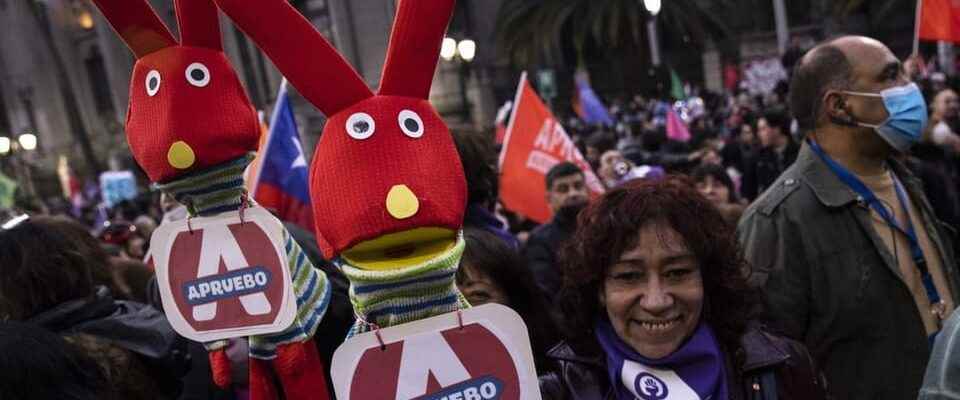contents
The new constitution would fundamentally change the country. Recent polls tend to point to a rejection.
Chile, with around 19 million inhabitants, is voting on Sunday on a draft constitution that was largely drafted by left-wing progressive forces, independent parties and activists within a year. Half of the convention was made up of women and 17 seats were held by indigenous people.
A new constitution was a key demand of the 2019 anti-government demonstrations that left scores dead. Two years ago, almost 80 percent voted for the project.
The draft in the present form would change the country significantly: The Magna Carta guarantees, among other things, the right to housing, health and education. In the future, half of the state organs are to be filled by women. For the first time, the right of self-determination of the indigenous communities would also be recognized.
Draft on the brink, according to polls
More than half a million people came together last Thursday for a huge street festival in the center of the capital Santiago at the end of the pro-campaign “Apruebo”. For comparison, there were 400 people at the end of the opposition campaign on San Cristobal Hill.
Legend:
Hundreds of thousands took to the streets of Santiago de Chile on September 1 to once again campaign for the adoption of the new constitution.
Keystone/EPA/Alberte Valdes
She experienced a very hopeful mood, reports the journalist Sophia Boddenberg from Santiago. The supporters are aware that a new constitution will not solve the problems immediately. Accordingly, she got the impression at the time that the mood on the street strongly contradicted the latest survey results, which tended to assume a rejection.
Proponents are aware that a new constitution will not solve the problems immediately.
Misinformation creates fear and uncertainty
But the right-wing opposition is running a massive counter-campaign. Many people in conservative society consider the constitutional text to be a left-wing utopia that could jeopardize Chile’s economic success with state intervention. The supporters speak of the most progressive constitution in the world.
According to Boddenberg, the plurinationality with the recognition of the indigenous people with land rights and cultural rights is particularly controversial in the countryside. A lot of false news and insufficient information also caused uncertainty: “A lot of people are afraid that land would be expropriated and that indigenous people would have more rights than Chileans.”
A lot of people are afraid that land would be expropriated and that indigenous people would have more rights than Chileans.
According to Boddenberg, there is also a lot of disinformation and misunderstandings on the other major issue, the planned strengthening of the public social and health system in contrast to the currently heavily privatized public services. For example, it is circulating that all private clinics would be banned. Accordingly, many fear that they will have to be treated in the underfunded public hospitals in the future.
A no would not be the last word
The government of President Gabriel Boric, who has only been in office for six months, depends on the new constitution. This is the only way his program can be implemented. In the event of a rejection, he wants to convene a new constituent assembly.
The political process is open and there will definitely be changes.
If Boric is successful, he wants to start reforms. To this end, he has agreed with other parties to revise the most controversial points again. “The political process is open and there will definitely be changes. How quickly they come depends on the outcome of the referendum and the resistance of opponents,” says Boddenberg.
